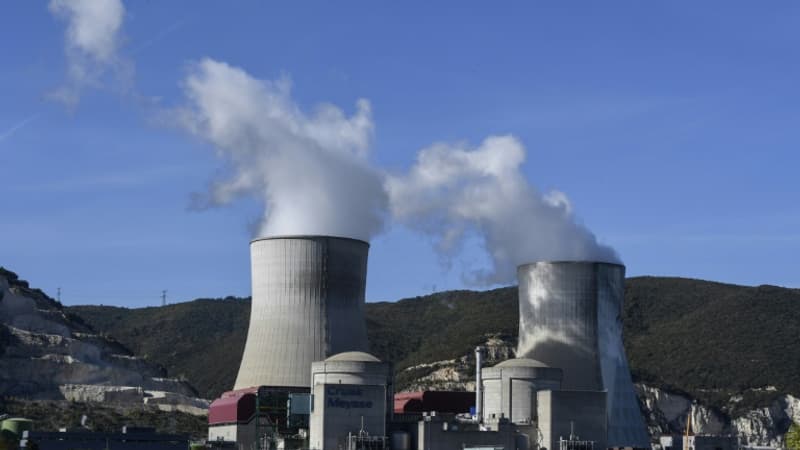To facilitate the construction of new reactors, Parliament definitively approved the nuclear reactivation bill on Tuesday, in a final vote by the National Assembly, where the cause of the atom gains ground. A week after a broad support from the Senate, the deputies voted in favor of the text by 399 votes against 100, with a coalition of votes from the presidential field, LR, RN and communists. Only environmental groups and LFI voted against. The PS, which opposed the text at first reading, abstained this time, after describing nuclear energy as a “transition energy” towards renewables.
The Minister for the Energy Transition Agnès Pannier-Runacher boasts of a “great text” to “produce independent, competitive and low-carbon energy”, and calls for a “political consensus” on energy matters. In the morning, she had gathered fifteen representatives of pro-nuclear European countries in Paris to give their opinion on the “energy strategy” of the European Union.
Simplification of procedures
Technically, the French bill simplifies the steps to realize Emmanuel Macron’s ambition to build six new EPR reactors by 2035 and begin studies for another eight. These are new facilities located at existing or nearby nuclear sites, such as Penly (Seine-Maritime), Gravelines (North)… After the Senate, parliamentarians lifted a blockade introduced in 2015 under François Hollande, and already modified under Emanuel Macron. The text thus eliminates the objective of a reduction to 50% of the participation of nuclear energy in the French electricity mix by 2035 (initially 2025), as well as the ceiling of 63.2 gigawatts of total licensed nuclear production capacity.
To the chagrin of opponents of nuclear power, he is speeding up the future multi-year energy programming law, which is expected at best this summer. “Everything was done out of order. (…) Only this programming law could decide whether or not to relaunch nuclear energy,” the Insoumis Maxime Laisney was outraged. The NGO Greenpeace and the Nuclear Exit network did not stop protesting: “the government, therefore, is putting the cart before the horse and is carrying out a forced recovery,” they denounce. Another sensitive point, the text toughens the penalties in case of intrusion into power plants, with an increased sentence of one to two years in prison and a fine of 15,000 to 30,000 euros.
“We must no longer have shameful nuclear power”
In the Assembly, environmentalists and the LFI criticized the bill, harping on “tons of waste” from nuclear power and the huge crack in a backup circuit for a Penly reactor, announced in early March. Julie Laernoes (EELV) denounced the “frantic hype to make people forget the dangers of nuclear power and its technological and financial setbacks.” Rebels and Greens promise an appeal to the Constitutional Council. The two parties campaign for the exit of the atom and the transition to 100% renewable energy by 2045. But twelve years after the Fukushima nuclear disaster in Japan, environmentalists acknowledge that they have lost ground in their “cultural battle” against the atom. such as polls showing growing support for nuclear power.
In the Assembly, a parliamentary commission of inquiry led by LR Raphaël Schellenberger and openly pro-nuclear Macronist Antoine Armand pointed to a thirty-year “political wandering” on energy issues. Faced with the climate emergency, and after fears of power cuts this winter in a context of war in Ukraine, “we must have no more shameful nuclear power,” pleads Renaissance MP Maud Bregeon, a former EDF and rapporteur for the bill. On the right, LRs support the text while criticizing Emmanuel Macron’s “spectacular twist” on the issue.
Nuclear safety reform ruled out
Unsurprisingly, the MPs did not reintroduce the government’s controversial nuclear security reform. But the executive still considers it necessary to found the Institute for Radiological Protection and Nuclear Safety (IRSN), an expert technician, within the Nuclear Safety Authority (ASN), the police officer of the plants, despite the protests of the unions. And in a joint commission, deputies and senators withdrew an amendment voted by the Assembly that sought to prevent any merger by guaranteeing a dual organization between IRSN and ASN.
This text on nuclear energy follows a law to accelerate renewable energy, approved in February.
Source: BFM TV


